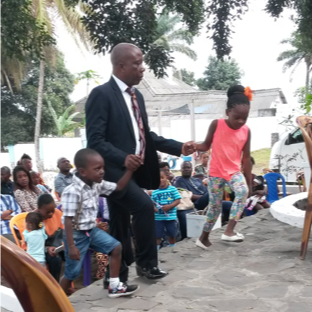Reflecting on Transformational Impact
Here at TeachBeyond, our mission is to provide transformational education to the students and communities in which we serve. Transformation—especially Holy Spirit initiated transformation—is not something that is easily measured; however, if we are serious about achieving our mission, then it would behoove us to spend time reflecting on where we are in our pursuit of this mission.
The School Services team, under the direction and leadership of Helen Vaughan, has compiled a list of Transformational Education Indicatorsthat we hope will help you do just that. Since Mark Giebink’s articlelast month focused on the foundational impact of personal transformation, we’ll look at the more professional indicators this month[1]. For access to the entire list, please e-mail schoolservices@teachbeyond.org.
Transformational Education Indicators[2]
Read each statement. Then reflect upon it and answer the question “how frequently is this indicator true in my life and practice?” Use a response scale of 1) frequently, 2) sometimes, 3) rarely, and 4) never.
Personal Indicators:
- I meditate on the scriptures, asking God to use them for personal transformation.
- I truly seek to love all people with the same love Christ has shown me.

Discipleship Indicators:[3]
- I ensure that all my students hear about the saving work of Christ on the cross and how to become
His follower.
I ensure my students have a developmentally appropriate understanding of the implications of the creation, the fall, the redemption, and the restoration of God’s kingdom on earth.
- I reference scriptural underpinnings relevant to instruction, classroom management, and fellowship with my students.
- I remind my students of my own brokenness and need for a Saviour.
- My students see/hear my loving care for people who do not share my faith perspective.
- I exhibit my intense love for Jesus to my students.
- I provide my students with defined opportunities to appreciate and express love for God in each unit of study.
Instructional Indicators[4]:
- I provide my students with lessons which point to the nature and character of God.
- I provide opportunities for my students to enhance both their local and global community.
- I ensure that my classroom has a climate of affirming and caring for each other.
- I use a variety of teaching practices to help uncover different types of student gifting.
- I teach my students biblical conflict management and ensure that it is used.
- My students hear me affirming hope in our loving God in the face of a decaying and despairing world.
 I engage my students in examining, then critiquing, how humankind is making use of the resources that God has given us.
I engage my students in examining, then critiquing, how humankind is making use of the resources that God has given us.- I help my students see the possibility of suffering and being joyful at the same time, of turning defeat into victory.
- I equip my students to swim against the tide in standing up for the oppressed, forgiving others, and having empathy.
- I ensure that the processes and structures in my class promote the resolution of broken relationships, personal accountability, and restoration of peace.
Community:
- I lead my class in positively contributing to the well-being of our school.
- I lead my class in positively contributing to the well-being of our neighbourhood or city.
- I lead my class in positively contributing to the well-being of our world.
TeachBeyond School Services Team
TeachBeyond, Global
This is our last issue of OnPracticefor the 2017-2018 academic year. Publication will resume in August 2018. Enjoy your summer holidays!
[1]Spending time developing our own personal relationship with Jesus is absolutely crucial to any of the rest of this work. Without our own lives reflecting the transformation brought about by the restorative work of the Spirit, all our efforts are nothing more than resounding gongs and clanging cymbals.
[2]The indicators published here comprise only a selection of the entire list.
[3]To be used in overtly Christian schools.
[4]To be used in all schools, references to God and the Bible indicate the source, but it is understood that in some cases these terms cannot be used with students.)
Photo Credits:Prayer. TeachBeyond Facebook Page, 16 Dec. 2017. Planting. Baby English Club Facebook Page, 4 May 2018.



